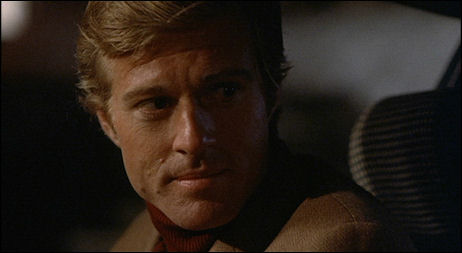There were two standouts among theAustin Film Critics choices — Inglorious Basterds‘ Melanie Laurent for Best Actress and Up In The Air‘s Anna Kendrick for Best Supporting Actress. Otherwise they voted for the usual usual — Hurt Locker, Bigelow, Firth, Waltz, etc. Waltz! Waltz!
Cost Effective
The Avatar cost factor has essentially become a selling point, in the view of director James Cameron. “I don’ think it means jack shit,” he told the Hollywood Reporter‘s Carl DiOrio.
“To be perfectly honest, I think the studio has generated the myth about its costs to help in the selling of the movie. I have seen this happen with Terminator and True Lies and Titanic, and it helps [Avatar] become a must-see film. By the way, doesn’t that mean it’s a bargain to see such an expensive film for the same amount it costs to see any other film? It’s the deal of the century!”
Kill Health Bill, Go to Reconciliation
With the public option and the Medicare buy-in both out the window, the Senate health care bill is so weakened and watered-down that it would be better to try to kill it than fight for its passage. Go instead to reconciliation and start the process all over again two years hence. And do whatever’s necessary to prevent the obstinate and obstructionist Sen. Joe Lieberman from being re-elected.
“This is essentially the collapse of health care reform in the United States Senate,” former presidential candidate Howard Dean said in a radio interview yesterday. “Honestly the best thing to do right now is kill the Senate bill, go back to the House, start the reconciliation process, where you only need 51 votes and it would be a much simpler bill.”
Beefcake Island
40 days hence VCI is releasing a DVD of a film I’ve never heard of — Stuart Heisler‘s Island of Desire (1952), a Tab Hunter movie with a somewhat older Linda Darnell (29 to his 21) as the love interest. Who in the world would buy or rent this? It’s obviously negligible. Older gay guys?

The IMDB notes that “the July 22, 1952 edition of The New York Times noted that this film would make its local debut at Lowe’s Metropolitan Theatre in Brooklyn on Wednesday, July 30. However, the newspaper did not send a reviewer on opening day.”
“Lieutenant Elizabeth Smythe (Darnell), a U.S. Military hospital-ship nurse, and Marine Corporal Michael J. “Chicken” Dolan (Hunter), are the only survivors when a hospital ship hits a mine in the South Pacific during World War II. The two spend months alone on a deserted island and, in spite of the age-difference, fall in love…and for other obvious reasons. Their peaceful existence is shattered when an airplane crashes on the island and the only survivor, William Peck, also falls for Elizabeth.”
Cool Guys Don’t Look
An end-of-the-year recall of a moderately amusing music video with Will Ferrell, Andy Samberg and JJ Abrams. Made for the 2009 MTV Movie Awards, originally aired 5.31.09…when I was still in Europe and not paying attention.
Sexy Prick
“The skiing sequences in Michael Ritchie‘s 1969 Downhill Racer are still hold-your-breath-and-don’t-blink thrilling,” writes MCN’s Douglas Pratt (editor of the DVD Newsletter). “In fact, the whole movie is thrilling. Deftly staged and then masterfully edited, every sequence in the 101-minute feature is exquisitely succinct and yet abundantly rich in conveying the psychologies and emotions of the characters.

Robert Redford in Michael Ritchie’s Downhill Racer
“Robert Redford stars as a hotshot American skier prepping for the Olympics, Gene Hackman is his coach, and Camilia Sparv is his short-term romantic interest. Redford’s performance is as fearless as whoever was doing his skiing. His character is utterly self-absorbed and yet magnetically charismatic, so that the film, along with everything else, seems to be a primer on how unlikable people can still be heroes because they channel their souls into what makes them heroic at the expense of everything else.”

Good Lovin’

It’s almost surreal that the TAGHeuer ad slogan — “What are you made of?” — seems to exactly articulate what everyone in the Western Hemisphere is wondering about Tiger Woods at this moment. The downside, of course, is that the the slogan jabs so precisely with Woods’ situation that the product is rendered all about invisible. Woods is not the first superstar athlete to cat around. I’m pretty sure that Mickey Mantle was just as “bad” if not worse. What other sports legends were insatiable in this regard?

The dull anasthetic of rural New York State — Tuesday, 12.15, 3:50 pm.
The Conformists
Somebody forgot to explain the drill to the San Francisco Film Critics Circle. It’s Inglourious Basterds‘ milk-drinking Nazi Christoph Waltz for Best Supporting Actor, dummies, and not Christian McKay for his bellowing genius performance in Me and Orson Welles. Scores of obsequious critics in cities across the country have voted for Waltz over the last three or four days, so how could there have been a misunderstanding?
And what’s with the SFFCC giving Wes Anderson and Noah Baumbach their Best Adapted Screemplay award for Fantastic Mr. Fox?
Otherwise the SFFCC fell into the ranks. Hurt Locker for Best Picture, Kathryn Bigelow for Best Director, Colin Firth‘s Single Man performance for Best Actor, Quentin Tarantino‘s Inglourious Basterds for Best Original Screenplay, Meryl Streep‘s Julie & Julia performance for Best Actress, etc.
I’m sickened by the coast-to-coast toadying shown to Streep over a lightweight “bit” performance. I enjoyed her as well but this is Carey Mulligan‘s year…obviously!
“You’ve been promoting Mulligan since Labor Day,” a critic friend wrote this morning, “but speaking as someone who voted in two critics groups this week (NYFCC and NYFCO), I can tell you that she barely registered. The big showdown in best actress in each group was between Streep and Tilda Swinton (Julia), with Streep squeaking out the win by only a vote or two in both cases.
“And Swinton, who gives one of the ballsiest performances of the year, isn’t even a Golden Globe nominee — and probably won’t register w/the Academy either because each, in their own way, are the province of the lame, the halt and the feebleminded.”
Scottworld
My first reaction to the news about Ridley Scott and Russell Crowe‘s Robin Hood movie was “again?” This new trailer doesn’t change anything. I feel as if I’ve seen it already. What could it bring to the table that’s significantly different from the Kevin Costner version? Apart from the grittier cinematography and production design and Crowe’s machismo, I mean? It’s the same old recipe.
Here‘s a neat little video taken last summer on the outdoor Robin Hood set, which uses the same clearing (located in Bourne Wood, Tilford — south of Farnham, Surrey) seen in the opening battle scene at the beginning of Gladiator.
Interruption
I have to get a rental car and drive all the way the hell up to frigid Syracuse this afternoon to pick up Jett and take him back down for the holidays. I’ll be staying there this evening and thereby missing the Nine premiere and after-party in Manhattan.
Golden Globe Nommies
The Golden Globe nominations were announced this morning. (Here‘s the Indiewire link.) Up In The Air accumlated six nominations, and Nine did fairly well with a Best Picture Comedy/Music nomination plus ones for Daniel Day Lewis and the very deserving Marion Cotillard.
The only surprise I’m seeing thus far is their decision to place Meryl Streep‘s Julie & Julia performance into the Best Actress Comedy or Musical category, thus leaving the Best Actress competish open to Carey Mulligan (who’s been strangely losing to Streep in the critics awards so far). Categorizing Streep’s performance as Julia Child under comedy is, of course, ludicrous, but that’s standard HFPA thinking.
They also nominated Streep in the Comedy/Musical category for her It’s Complicated performance, so they’re obviously planning to give her the award.
The only other standout is Tobey Maguire getting Best Actor-nominated for his madman performance in Brothers. Also well deserved.
I can’t be bothered to paste and reformat all the nominees so here‘s the Variety story.
Wrongos
I was told yesterday by producer Ed Pressman that the Hollywood Foreign Press recently rejected the submission of Nicolas Cage‘s performance in Bad Lieutenant: Port of Call New Orleans for Best Actor in a Comedy or Musical — a not very perceptive call, not to mention unfair and unhip. They also blew off This Is It! as a submission in the Best Musical/Comedy genre.

